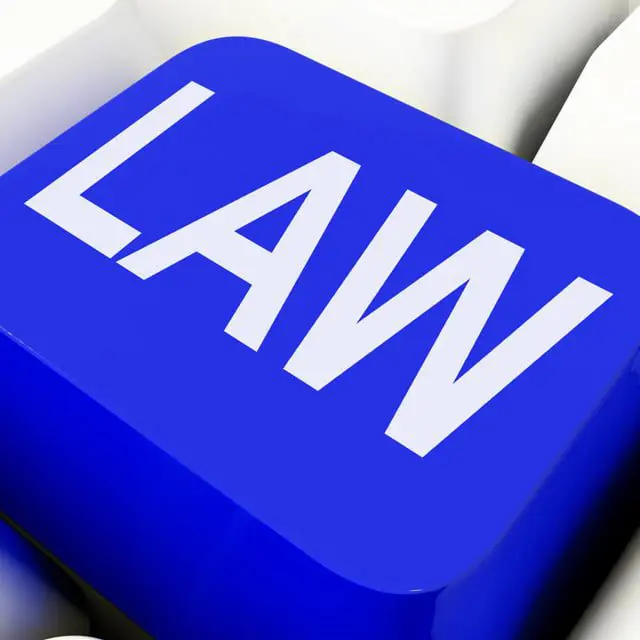Understanding the Bankruptcy Code and how it affects both individuals and corporations is essential for navigating financial difficulties and seeking a fresh start. The United States Bankruptcy Code, as outlined in Title 11 of the United States Code, offers a legal pathway for persons and entities overwhelmed by debt to resolve their financial obligations and, in many cases, to reset their financial standing.
The Fundamentals of Bankruptcy
Bankruptcy is fundamentally a process designed to give individuals and businesses a chance to address debt under the protection of the federal court. Most bankruptcy filings fall under either Chapter 7, Chapter 11, or Chapter 13 of the Bankruptcy Code. Each chapter provides a different approach for handling debt: Chapter 7 allows for liquidation of assets to pay off debts, Chapter 11 offers a reorganization framework for businesses, and Chapter 13 proposes a debt repayment plan for individuals with a regular income.
Understanding the differences and choosing the right chapter is critical. For instance, Chapter 7 bankruptcy might be suitable for those seeking to discharge unsecured debts quickly, whereas Chapter 13 bankruptcy appeals to those wishing to keep their assets and pay off debts over time. Businesses facing financial distress might find Chapter 11 bankruptcy as a viable option to restructure and streamline operations while repaying creditors.
Navigating the Bankruptcy Process
The bankruptcy filing process involves intricate legal proceedings, starting with the submission of a petition to the court. Debtors must disclose all assets, liabilities, income, and expenses. The Bankruptcy Code ensures fair treatment to all parties involved, including the debtor seeking relief and the creditors seeking repayment.
One of the key components of filing for bankruptcy is the automatic stay, which immediately halts most collection efforts against the debtor. This provision provides temporary relief, allowing the debtor to strategize the next steps without the immediate pressure from creditors.
Legal Advice and Consultation
Given the complexities of the Bankruptcy Code, seeking professional legal advice is highly recommended. A bankruptcy attorney can offer invaluable insights into the process, help determine the most appropriate chapter under which to file, and navigate the legal intricacies. Legal consultation can also assist in maximizing the benefits of bankruptcy while minimizing the potential negative impacts on one’s financial future.
Bankruptcy and Financial Recovery
Bankruptcy should not be seen as the end of one’s financial journey but rather as a tool for financial recovery and a second chance. Post-bankruptcy, individuals and businesses can work towards rebuilding their credit and financial stability. Financial planning and management become crucial in this phase, with a focus on budgeting, saving, and responsible credit use.
Conclusion
Understanding and navigating the Bankruptcy Code can be a daunting process. However, with the right information and professional guidance, it can provide a lifeline for those drowning in debt. Bankruptcy offers a structured way to address financial problems, allowing for a fresh start and a pathway to financial stability.
Expanded Insights into Bankruptcy and Its Implications
Bankruptcy’s impact goes beyond the immediate financial relief; it also carries long-term implications for one’s credit history and financial reputation. A bankruptcy filing can remain on an individual’s credit report for up to 10 years, affecting their ability to obtain loans, credit cards, and sometimes even employment. However, this period also offers an opportunity to rebuild creditworthiness through careful financial planning and responsible credit management.
The Role of Bankruptcy Courts and Trustees
The United States bankruptcy courts play a crucial role in the bankruptcy process. These specialized courts review and adjudicate all bankruptcy filings, ensuring that the proceedings follow the Bankruptcy Code. Bankruptcy trustees are appointed to oversee specific cases, managing the liquidation of assets in Chapter 7 filings or supervising the debtor’s repayment plan in Chapter 13 and Chapter 11 reorganizations. The trustees’ responsibilities include reviewing the debtor’s finances, distributing proceeds to creditors, and ensuring the bankruptcy process is fair and transparent.
Debtor Education and Credit Counseling
The Bankruptcy Code mandates debtor education and credit counseling as part of the bankruptcy process. Before filing for bankruptcy, individuals are required to undergo credit counseling to explore all available debt relief options. Post-filing, debtor education courses provide valuable information on budgeting, managing finances, and using credit responsibly. These requirements aim to equip debtors with the tools necessary for successful financial management post-bankruptcy.
Exemptions and Protected Assets
Understanding exemptions is crucial when filing for bankruptcy. The Bankruptcy Code allows debtors to exempt certain assets from liquidation, ensuring they do not lose everything. These exemptions vary by state but typically include basic necessities such as homestead, personal property, vehicles up to a certain value, and retirement accounts. Properly utilizing exemptions can significantly affect the outcome of a bankruptcy case, allowing individuals to retain essential assets for their fresh start.
Life After Bankruptcy: A New Beginning
Emerging from bankruptcy offers a clean slate and a chance to rebuild. It’s an opportunity to reassess financial goals, develop a robust budget, and establish an emergency fund. Responsible credit use, such as securing a secured credit card or small installment loan and making timely payments, can help rebuild credit over time. Education on financial management and awareness of spending habits are key to avoiding future financial distress.
Final Thoughts
The journey through bankruptcy is a pathway to financial recovery, not a destination of financial despair. It provides a structured process for dealing with overwhelming debt and offers a chance for a fresh start. With the right approach, including seeking professional advice, understanding the Bankruptcy Code, and committing to sound financial practices, individuals and businesses can emerge from bankruptcy stronger and more financially savvy.
This expanded view into the bankruptcy process, its implications, and the road to recovery aims to provide a comprehensive understanding of how the Bankruptcy Code functions as a tool for financial stability and renewal.
Disclosure: Generative AI Created Article
















